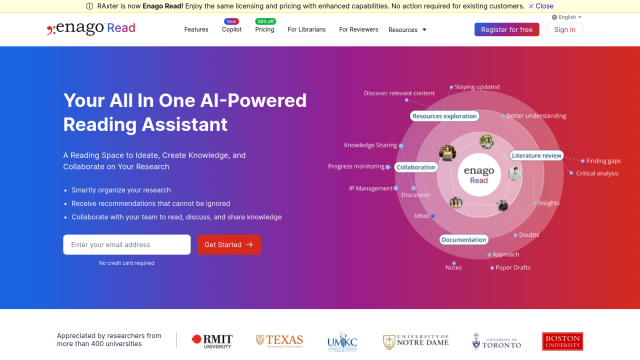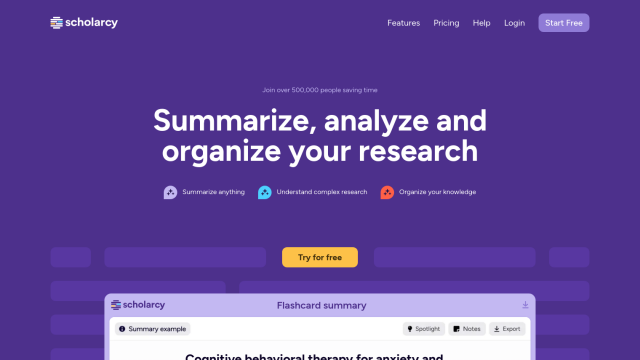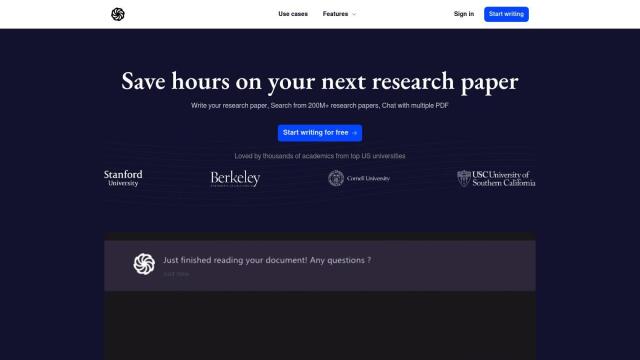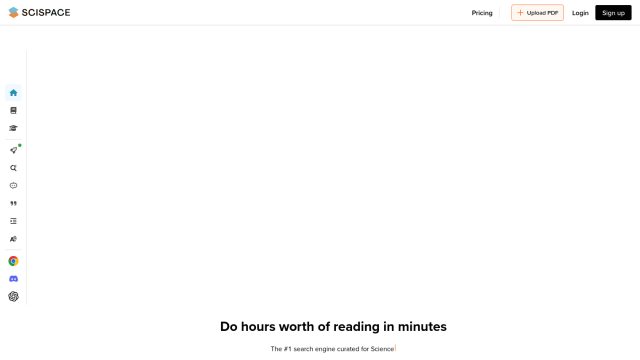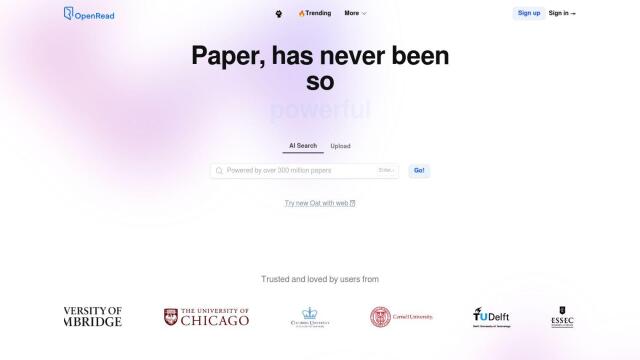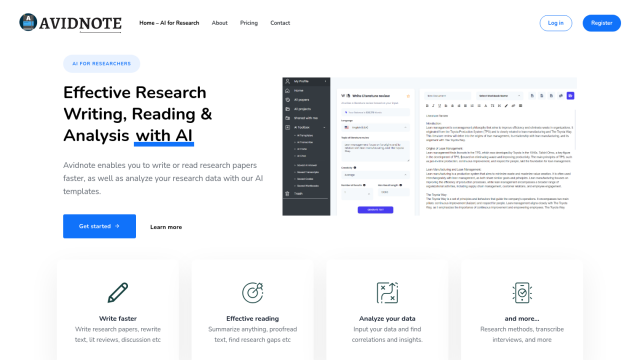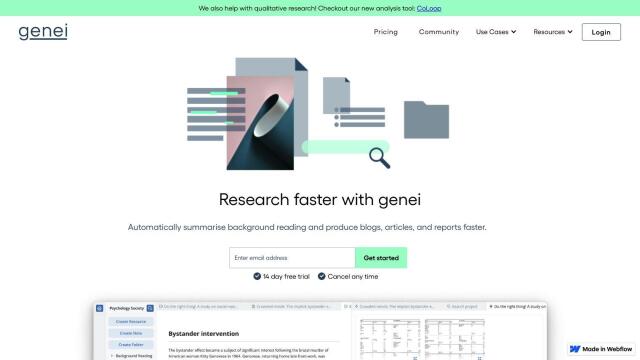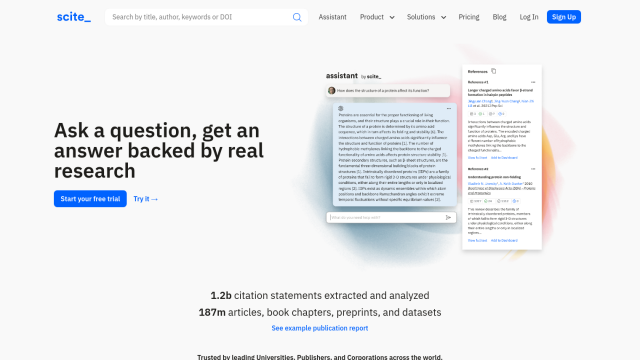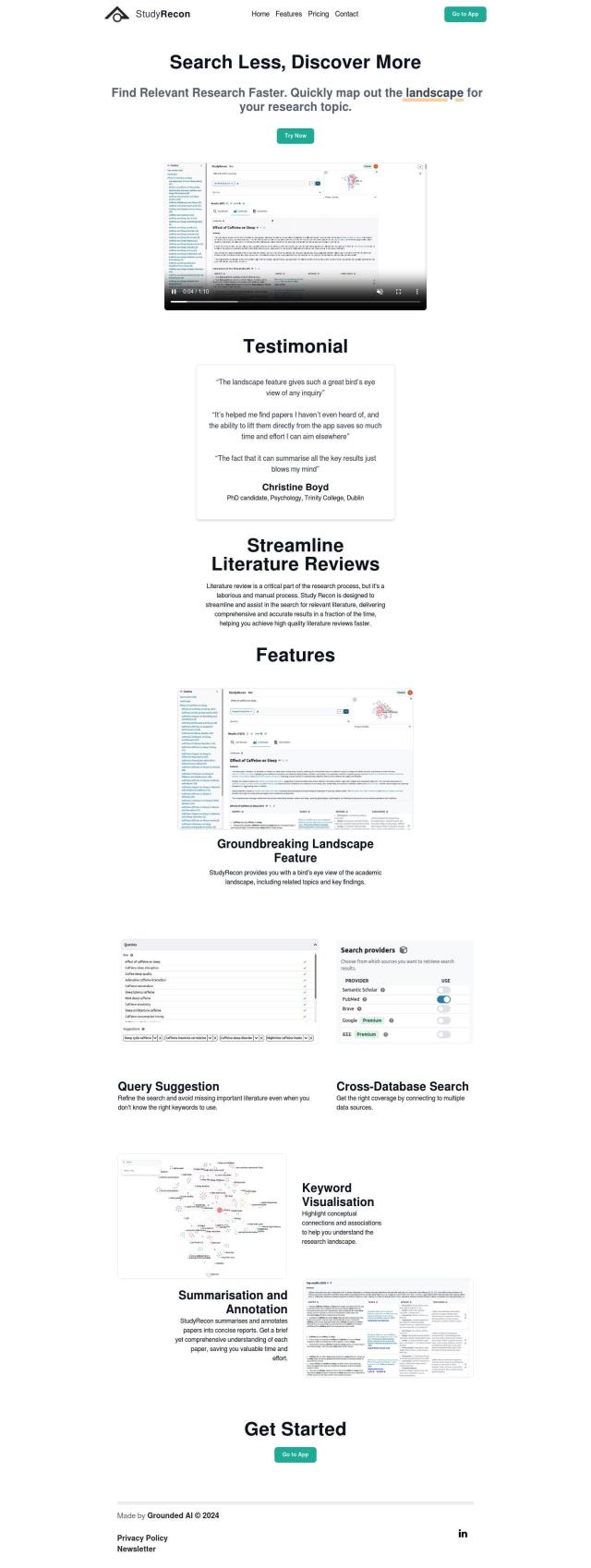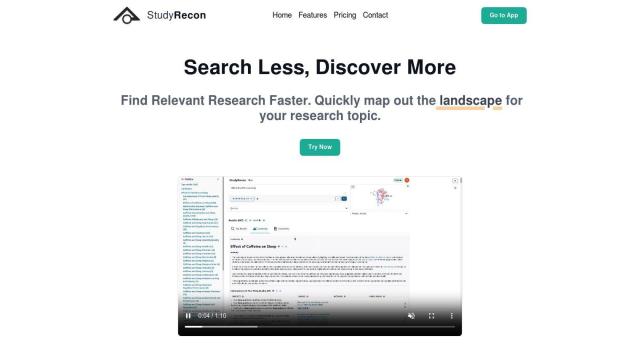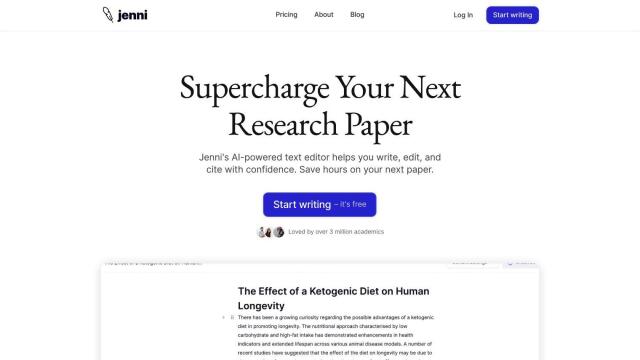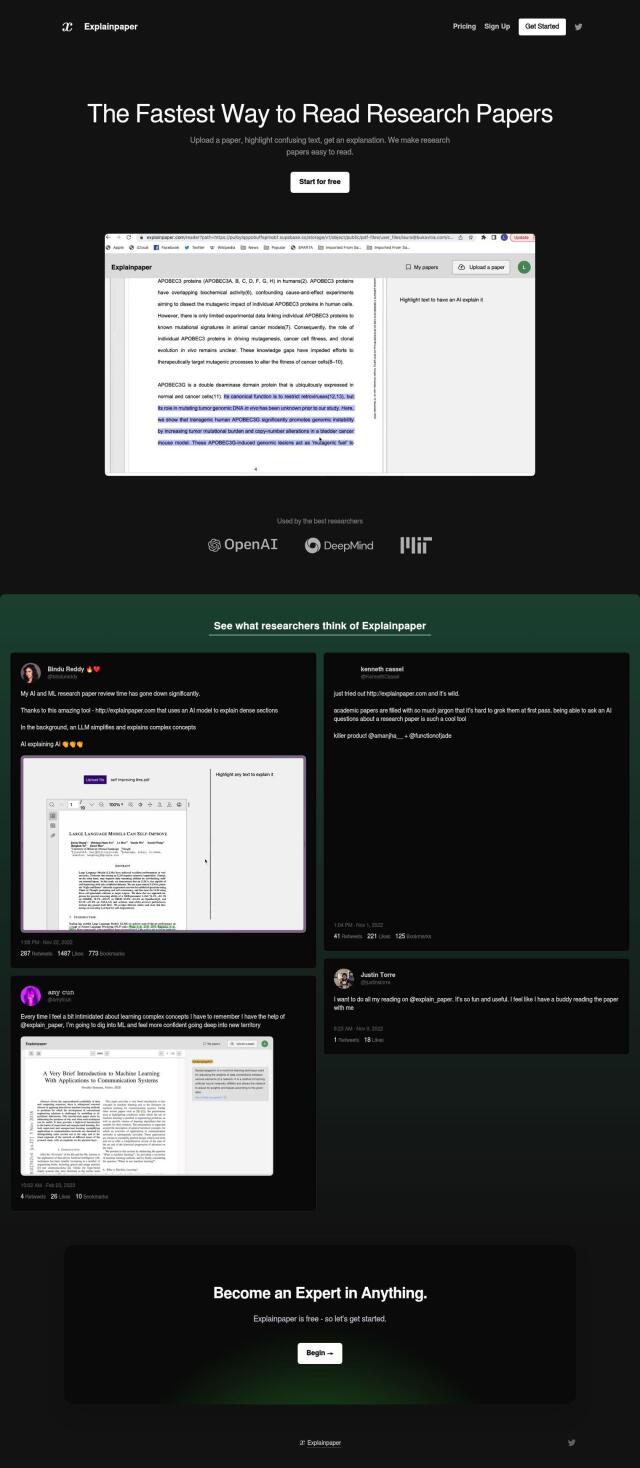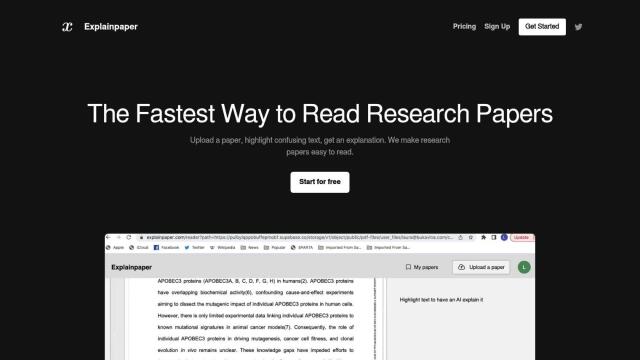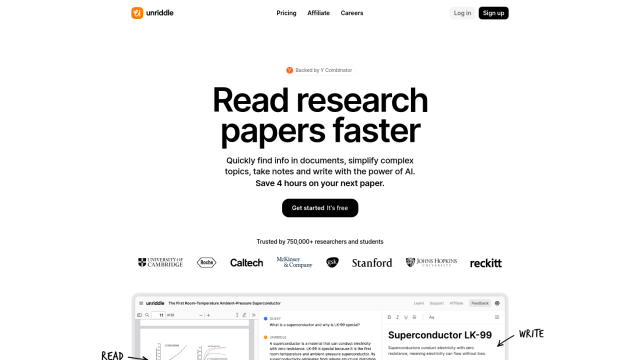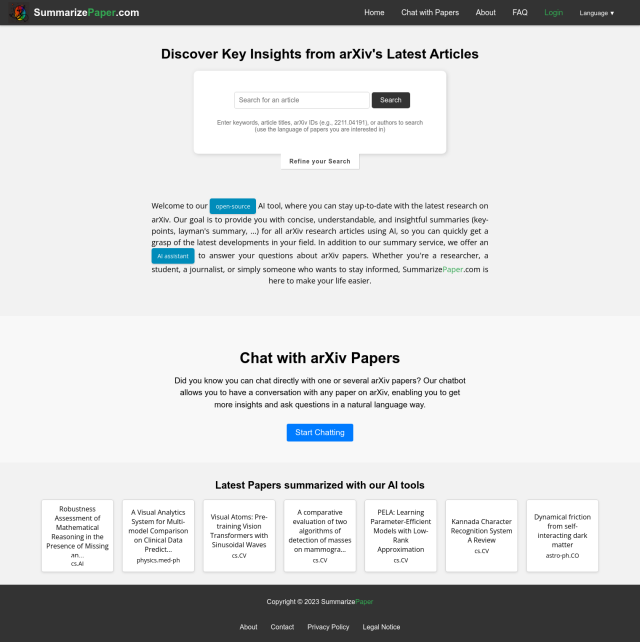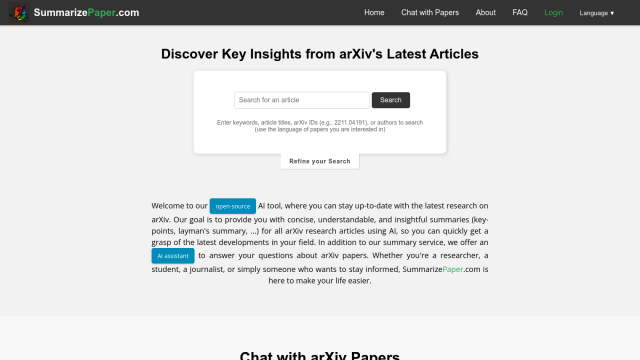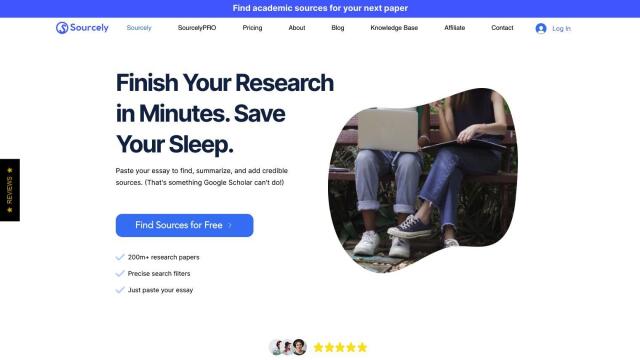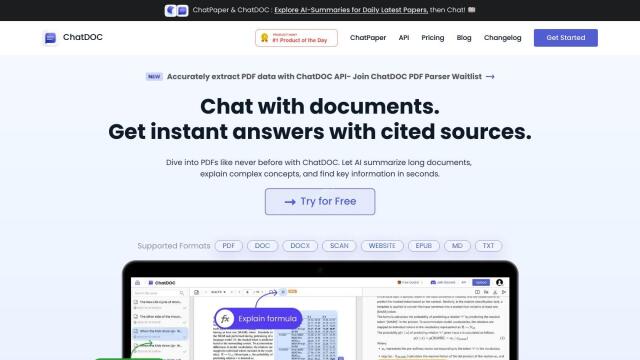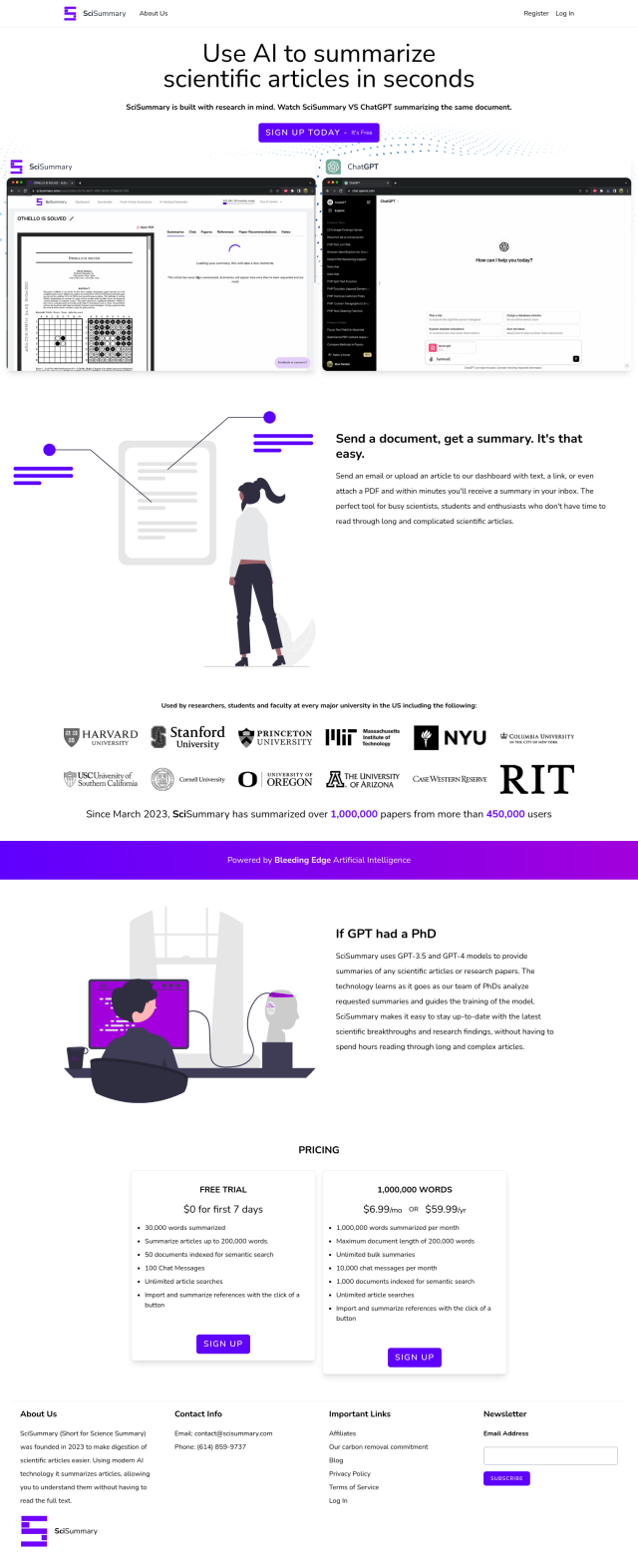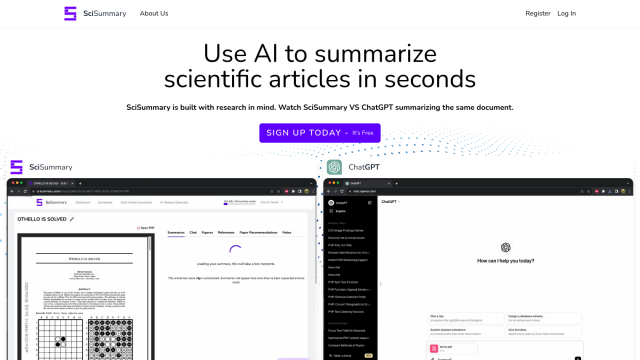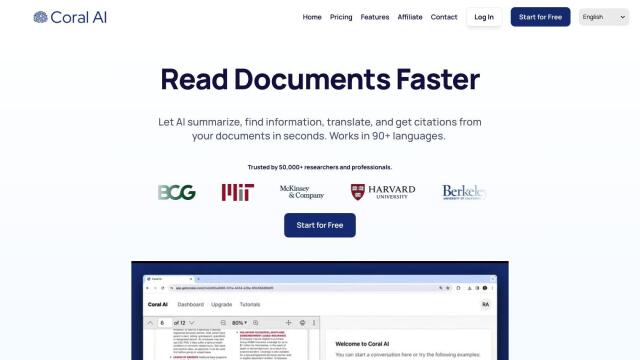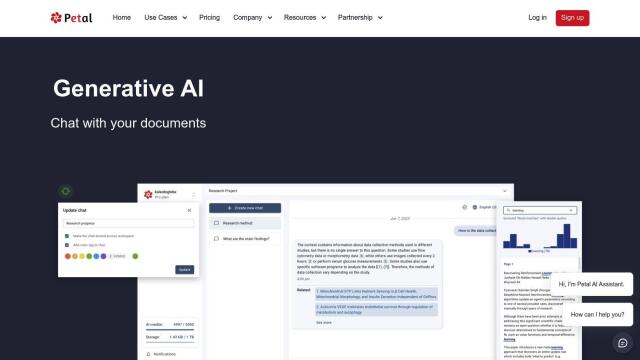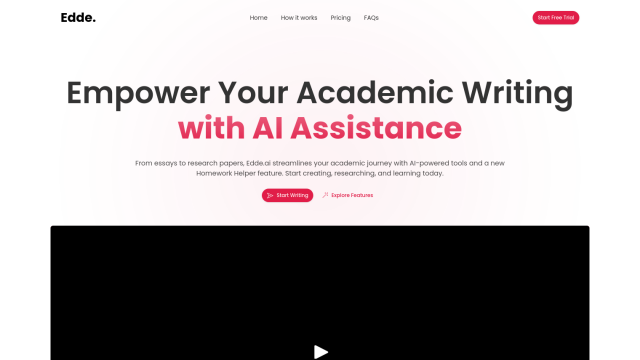Question: I'm looking for a tool to help me organize and analyze a large number of research papers for my literature review.


Elicit
If you're looking for a tool to help you organize and analyze lots of research papers for a literature review, Elicit is worth a look. This AI research assistant indexes more than 125 million academic papers and can quickly find, summarize and extract information from them. It can spot trends and concepts, too, and even let you converse with individual papers. It's geared for empirical subjects like biomedicine and machine learning, and has different pricing options for individuals, professionals and organizations.
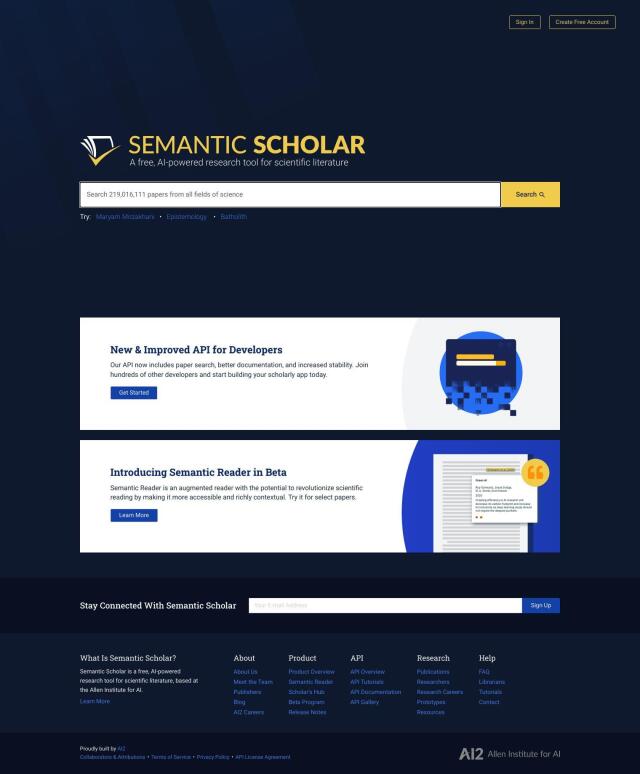
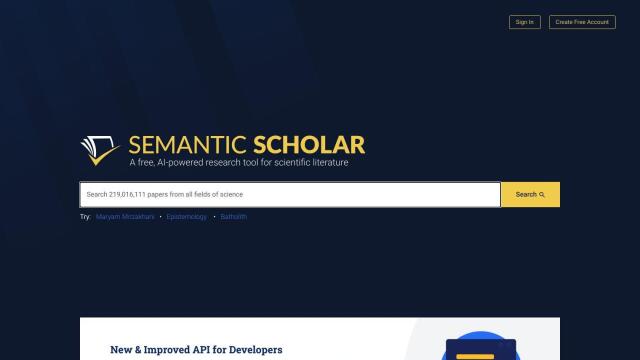
Semantic Scholar
Another good option is Semantic Scholar, which has a broad search engine with options to filter by journals, authors and date ranges. It offers short summaries (TLDRs) and tools to organize papers into folders, create research feeds and share with collaborators. You can also set up automated email alerts and monitor research with custom dashboards. Semantic Scholar is free and open to anyone, with open programming interfaces so developers can incorporate it into their own projects.

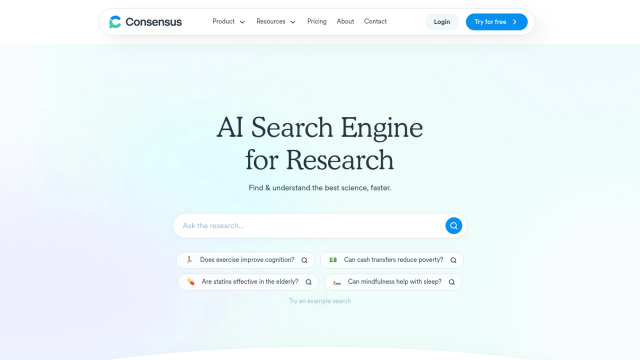
Consensus
If you want a more AI-infused search experience, Consensus could be worth a look. It indexes more than 200 million papers across all subjects and offers AI insights through features like Copilot and Consensus Meter. It also has proprietary search tools and filters to help you narrow down your literature review. Consensus offers several pricing options, from free to enterprise, so you can find a level that works for you.

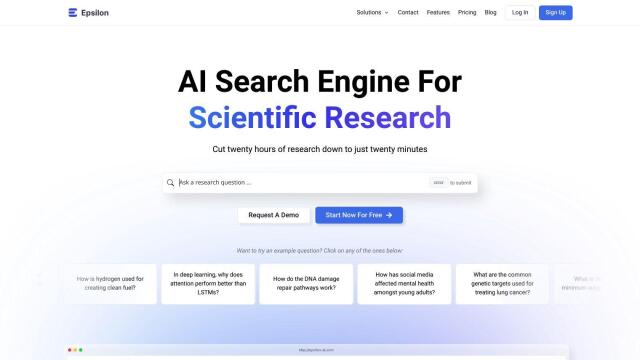
Epsilon
Epsilon is another option. It's designed to speed up scientific discovery by summarizing information and synthesizing insights from a database of more than 200 million academic papers. It offers features like Investigate for summarized answers, Search for organizing publications, Validate for assessing claims, and Synthesize for deeper summaries. Epsilon is used by more than 30,000 researchers around the world and offers several pricing levels for individuals, students and organizations.

